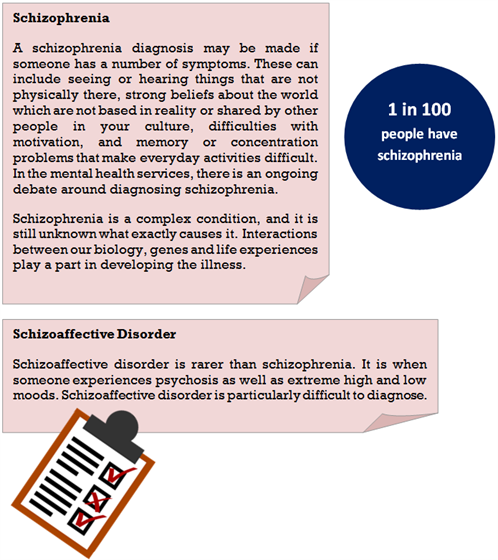
What if I get a schizophrenia diagnosis?
When you speak to your GP about your experiences and symptoms, your GP may make a referral to a psychiatrist, who is a medical doctor specialised in mental health. Psychiatrists diagnose mental health conditions, and you may be given a diagnosis.
Health professionals use diagnoses to describe the symptoms someone is experiencing and to identify how to support their individual needs. They are based on sets of guidelines known as 'diagnostic criteria'. In Scotland, the International Classification of Diseases (ICD-10) is used to determine a diagnosis of schizophrenia or schizoaffective disorder.

Diagnosis and Stigma
Diagnosing mental illness is controversial within the mental health service and in the wider community. Many people with a diagnosis disagree with it or think other things could explain their symptoms. Others find a diagnosis useful, as it puts a medical name to the experience and can help people find others with the same diagnosis who understand.
People who receive a diagnosis sometimes worry about other people's reactions. This is understandable as mental illness is often misrepresented and misunderstood. 'Stigma' is when someone is treated differently to others in a negative way. Although steps are being taken to change social attitudes, people still experience stigma related to mental illness.
It is important to remember that when someone is mentally unwell their behaviour is not necessarily a reflection of their personality (who they are as a person). One of the best ways to overcome stigma is to educate your family and friends about what you are going through.

Share
Tweet
Plus1